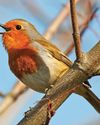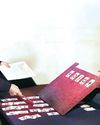
GET INVOLVED BRITISH SCIENCE WEEK
British Science Week is happening in March - and it's about time! Don't worry though, it isn't actually late.
"Time" is this year's theme. Time is key to so many STEM (science, technology, engineering and maths) discoveries. The movement of planet Earth explains why we have different seasons over the year, and why we need time zones.
Microsecond accuracy keeps our computer systems ticking and helps global positioning satellites to provide us with precise location information. Evolution helps us understand how plants and animals changed over a long period of time. In fact, knowing how far light travels in one year helps us work out the size of the universe.
The week hopes to raise awareness and spark enthusiasm for STEM subjects. There will be lots of events across the UK, including special school activities. Perhaps you have some events planned at your school. If so, please let us know what you are doing. British Science Week kicks off on 8 March and runs until 17 March. Visit britishscienceweek.org to find out what is happening in your local area.
Three ways to experience time
Astronomical time
Esta historia es de la edición Issue 72 de The Week Junior Science+Nature UK.
Comience su prueba gratuita de Magzter GOLD de 7 días para acceder a miles de historias premium seleccionadas y a más de 8500 revistas y periódicos.
Ya eres suscriptor ? Conectar
Esta historia es de la edición Issue 72 de The Week Junior Science+Nature UK.
Comience su prueba gratuita de Magzter GOLD de 7 días para acceder a miles de historias premium seleccionadas y a más de 8500 revistas y periódicos.
Ya eres suscriptor? Conectar

SUGAR RUSH
Join the candy craze as Claire Karwowski studies the sugary science of sweets.

Wildlife watch
Stevie Derrick shows you what to spot in nature this month

The Sixth Sense
Could humans have more than five senses?

Catherine Heymans
Meet the starry-eyed astronomer who loves backyard stargazing.

WORLD OF WHIFFS
Stevie Derrick follows her nose to track down the world's grossest stinks and nastiest niffs.

Dogs can understand names of objects
Humans enjoy talking to their dogs. If you have a four-legged friend of your own, you might have taught them to respond to commands like \"sit\" and \"stay\".

Smoke rings in the sky
In April, videos were filmed of Mount Etna, a volcano on the Italian island of Sicily, puffing what looked like smoke rings into the sky.

Huge gold nugget found
A gold nugget that could be the largest ever found in England was recently put up for auction. Metal detectorist Richard Brock discovered the nugget on farmland during an organised expedition in Shropshire last year.

Evolutionary tree shows birds in a new light
Researchers have produced the most detailed evolutionary tree of birds ever.

The largest plane to ever fly
Take a first look at the mighty Radia WindRunner aircraft